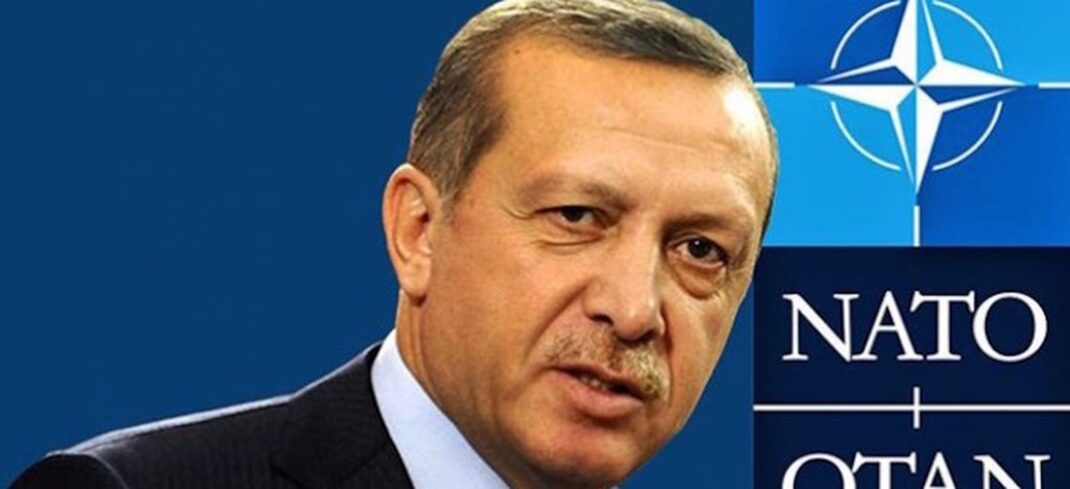By Barçin Yİnanç
 It is surprising to see how Turkey’s presence in Africa and growing role in the Middle East is met by questions like “What is Turkey doing in Africa?”
It is surprising to see how Turkey’s presence in Africa and growing role in the Middle East is met by questions like “What is Turkey doing in Africa?”
For those asking this question, the British, French or Belgian presence on the continent is a given. Are they justifying this presence by the European colonial past? If that is enough justification, do they have to be reminded of the 500 years of Ottoman rule on the continent?
There is a new kid in town and the big boys are not happy with the newcomer as they see their position challenged. Looking from the angle of diplomacy, one can simply explain the anxiety toward Turkey with this line. But if a colonial or imperial past is required to justify the presence, a better line for Turkey should be “the kid is back in town.”
The metaphor for the new kid in town would better apply to China, as its presence over the course of the past two decades has gone far beyond that of Turkey’s. It is not easy to criticize an economic superpower like China. And in addition, Chinese rulers are communists, not Islamists.
When you frame Turkey’s presence in Africa, as a policy endorsed by a leadership defined increasingly as anti-democratic and Islamist, you can easily win the European public. And add to that “Neo-Ottoman aspirations;” it’s a double win. Actually there is increasing allergy in the West to imperial pasts, as thousands have been demonstrating in European cities against their states’ colonial sins.
Still, the word “Ottoman” has a very negative connotation for Europeans. As a result, those unhappy with Turkey’s policy could use Turkey’s ruling elites’ religious ideology or neo-Ottomanism to justify criticism. This might sell.
But there is another argument that is being used that is proving harder to sell, even though it still keeps coming up. It is based on questioning Turkey’s loyalty as a NATO member, with its policies presented as if Ankara is going against the alliance’s interests.
Lately, Turkey’s policies in Libya are being presented as a threat to NATO interests. But just as in the Syrian case, so far it is Turkey’s military intervention that has curbed Russian influence in Libya.
Turkey’s transparent policy vs France’s double game
While French President Emmanuel Macron has accused Turkey of playing a dangerous game in Libya, Turkey’s policies in Libya are much more transparent in comparison to France’s double game in the country.
Turkey says it is offering assistance to the U.N.-supported government in Tripoli, while it is an open secret that the warlord Khalifa Haftar challenging Tripoli is being supported by Russia, Saudi Arabia, the United Arab Emirates, Egypt and France. Yet all have opted to remain in the shadows while Turkey is openly and transparently challenging Russia in Libya.
A high-level delegation consisting of Foreign Minister Mevlüt Cavuşoğlu, Finance Minister Berat Albayrak and the Head of Turkish intelligence went to Tripoli in mid-June. That was followed by Defense Minister Hulusi Akar’s visit in early July.
This is clearly being done in order to avoid being portrayed as a player in dirty games in Libya through proxy powers. Even though reports that Turkey has sent Syrian mercenaries to Libya have not been denied, Turkey’s policies still looks less cynical than those of Haftar’s Russian, Arab and European supporters who prefer shadow boxing.
At any rate, I wonder in which sense the Turkish defense minister’s interview with the BBC in Libya in front of a downed Russian plane and helicopter have damaged NATO’s interests? This was followed by a visit to Ukraine where Akar has repeated that Turkey will never accept Russia’s annexation of Crimea.
Before these visits, two U.S. military bomber planes flying over the Black Sea in late May were refueled by Turkish tanker planes. This was part of a training exercise that involved Ukrainian warplanes. One would like to think that the Turkish role in these exercises over the Black Sea must have been met with more unease in military headquarters in Moscow than in Paris or Brussels.
I have written similar articles and feel distressed at having to repeat myself. Yet it is incomprehensible how some of our Western colleagues keep repeating the same arguments questioning Turkey’s NATO loyalty. Take the French claim that its military vessel was harassed by Turkish vessels near Libya, which is categorically denied by Ankara. Western colleagues keep writing about the claims without trying to find out who is saying the truth.
The Turkish media, which is generally accepted to be unfree by the Western media, might have its hands tied in terms of putting pressure on the government to provide evidence to its arguments against French claims. The Western media, however, has its hands free to push Paris to provide evidence. Still, had the French had unequivocal evidence, they would have leaked it a long time ago. It’s all bizarre, as the French would say…

********
Moscow and Ankara Will Continue Uneasy Cooperation
By Anna Borshchevskaya
 Putin set a trap for Erdogan long ago, and because the Turkish leader woke up too late to his predicament, he now has little leverage in the unequal bilateral relationship.
Putin set a trap for Erdogan long ago, and because the Turkish leader woke up too late to his predicament, he now has little leverage in the unequal bilateral relationship.
As Russia partially reopens international travel amidst the ongoing pandemic, Turkey is in the top three countries for resumed Russian flights. Moscow also touts possible space cooperation with Turkey amidst tensions with the US on this issue.
Despite disagreements between Moscow and Ankara over Syria, Libya, and the broader Black Sea region, Russia and Turkey remain determined to cooperate. But the relationship remains unequal. From energy and defense, to information space and using Turkey to drive NATO divisions, President Vladimir Putin holds more leverage over President Recep Tayyip Erdogan than the other way around.
Both countries seek to deepen their economic ties and over the years repeatedly stated a desired goal of reaching $100 billion in bilateral trade—an ambitious goal since the real trade volume has been less than a third of this target. Still, under Putin, the trade relationship with Turkey has developed significantly, and tilted in Russia’s favor. Turkey, for one, has grown reliant on Russian tourists. Thus it matters that Russian tourists now prioritize a return to Turkey.
Turkey’s exports to Russia in recent years have hovered in the $3-4 billion range, while imports stand at between $20-23 billion, according to IMF Direction of Trade statistics. After Ankara shot down a Russian plane in late 2015 when it briefly entered Turkish airspace from Syria, Moscow’s economic pressure contributed to Erdogan’s eventual apology for the incident.
Putin may have extracted Erdogan’s promise to buy the S-400 system in this context. And soon afterwards, during the failed summer 2016 coup against Erdogan, Putin rushed to send him a message of support and Erdogan shifted closer with the Kremlin. The purchase of the S-400 remains a significant cause of Turkey’s tension with the West, something Putin can only welcome.
Moscow is building Turkey’s first nuclear power plant, a project where Russian Rosatom State Corporation holds a 99.2 percent stake, while Turkey also remains reliant on Russian gas. This January, Putin and Erdogan launched TurkStream, a new natural gas pipeline that crosses the Black Sea into Istanbul and sends Russian gas to Turkey and southeast Europe bypassing Ukraine. Last year Russia ranked as the top gas supplier to Turkey.
To be sure, Ankara worked to reduce this dependence, and this year Russia dropped to fourth place. Indeed, desire for energy independence drove Erdogan to ally with the GNA in Libya to strengthen Turkey’s negotiating position on the Eastern Mediterranean, particularly on rights to Cypriot waters. Still, Turkey is far away from energy independence, while Putin, for his part, now offers Russian mediation to “ease tensions” over Turkey’s oil and gas exploration in this region.
Moscow also carries out information operations in Turkey, chiefly through Sputnik, something Erdogan cannot replicate in Russia. Ironically, Russian programming has emerged as one of the few sources many in Turkey perceive as independent—an alternative to Turkish state-controlled outlets, and one that can be critical of Erdogan.
Some of the best Turkish journalists went to work for Sputnik because they could not get a job anywhere else given the state’s crackdown on media freedom, which raised the program’s overall quality and helps Moscow project its narrative in Turkey.
Perhaps most importantly, Putin has continuously used the Kurdish card against Erdogan in Syria. Kurdish nationalism has been central to Erdogan, especially when it comes to his confrontation with the Kurdistan Workers Party (PKK), a Kremlin-sponsored Cold War era creation.
Erdogan insists that Syrian Kurds are terrorists, while Moscow relies on deep and long-standing ties to the Kurds. In Syria, a rapprochement with Putin enabled Erdogan to push back against Syria’s PYD/YPG region. As much as Erdogan had wished for Assad to go, his priority to push back against the Syrian Kurds was greater, and for that he needed Moscow.
Because of its enhanced position in Syria together with Crimea, Moscow now has “a permanent submarine force in the Mediterranean using Black Sea Fleet diesel-electric,” according to H I Sutton of US Naval Institute.
Moscow, he writes, is exploiting loopholes in the 1936 Montreux Convention “to establish a permanent presence in the Mediterranean,” which directly affects Turkey and NATO, as the Convention governs naval passage through the Turkish straits.
To be sure, Russia’s military position in Syria is weaker than in the former Soviet Union. In Syria, Turkey holds military advantages. Yet Erdogan also remains vulnerable to waves from additional refugees from Idlib, something Putin understands very well. And as tensions escalated in the last year between Russia and Turkey over Libya, Moscow signaled that it can create pressure on Erdogan through Idlib. Thus Russia’s Syria and Libya policy has grown increasingly connected.
But perhaps most importantly, neither Putin nor Erdogan is looking to resolve their differences through a direct military confrontation. After Russian forces killed 36 Turkish soldiers in northern Syria in February this year, rather than confronting Putin, Erdogan hoped to smooth over tensions and went to Moscow.
Putin for his part made him wait, while Russian television broadcast the humiliating scene. In the end, Erdogan returned home with little show for the visit. Meanwhile Russian and Turkish forces continue to jointly patrol the strategic Syrian M4 highway within the context of broader tensions between Russia, Turkey and Assad.
Middle East tensions often reverberate in the Caucasus. Thus tensions briefly escalated this July between Armenia and Azerbaijan in the deadliest skirmish since 2016 over the so-called “frozen conflict” in Nagorno-Karabakh—a conflict Moscow perpetuates to keep all sides dependent on the Kremlin. Erdogan swore “to stand against any attack” on Azerbaijan, while other senior Turkish officials spoke out against Armenia in favor of Azerbaijan.
Moscow called for a ceasefire, said it is ready to mediate between Armenia and Azerbaijan, and conducted last-minute massive military exercises on Russia’s southwestern borders, while the US navy was conducting its Black Sea drills.
The situation put Turkey and Russia once again on opposite sides, yet here too Moscow by comparison has a stronger hand. Perhaps for this reason Ankara has not gone too far beyond rhetorical support for Azerbaijan, though among others, sent helicopters for military drills.
In and of themselves, joint Turkey-Azerbaijan military drills are not new, yet it is impossible to separate the current context from this year’s exercises. Still, Moscow has ties with both Armenia and Azerbaijan, while Turkey has no relations with Armenia.
A military flare-up would give Moscow an opportunity to further entrench its military presence under the guise of peacekeeping, something no one in the South Caucasus, nor Turkey, could stop.
It’s no secret that Putin aims to divide NATO, and as the West’s relationship with Turkey grew increasingly strained over the years, analysts often asked whether Turkey would leave the Alliance. But the more relevant question is, why would Erdogan, or Putin for that matter, wish to see this happen?
Putin set a trap long ago for Erdogan, who woke up too late to who Putin truly is, and Erdogan now has few options left. For his part, Putin would prefer to have Turkey in NATO to drive deeper divisions within the Alliance. Moscow and Ankara are likely to continue with the uneasy status quo—making ad-hoc deals and proxy warfare rather than engage in direct military confrontation, while the overall power balance will remain in Moscow’s favor in the foreseeable future.
This situation in and of itself is not good news for Western policymakers. For one thing, it leaves Russia and Turkey as deciders in strategically vital parts of the world, such as Libya and Syria, where neither is motivated by genuine peace.
Instead, policymakers should focus on building leverage and asserting their own leadership position, beyond issuing more sanctions and watching Russia and Turkey make deals that ultimately will only entrench their positions, but will bring no genuine resolution to the strife in these countries. This can only hurt American and more broadly Western interests.
…
Anna Borshchevskaya is a senior fellow at The Washington Institute, focusing on Russia’s policy toward the Middle East.
____________





